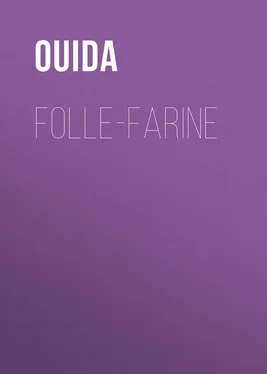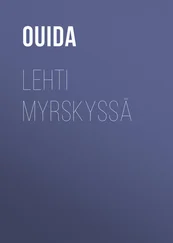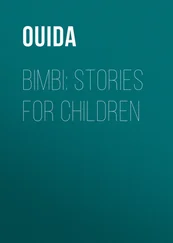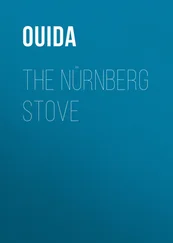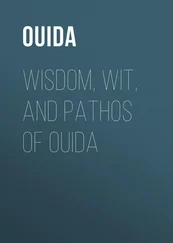Ouida - Folle-Farine
Здесь есть возможность читать онлайн «Ouida - Folle-Farine» — ознакомительный отрывок электронной книги совершенно бесплатно, а после прочтения отрывка купить полную версию. В некоторых случаях можно слушать аудио, скачать через торрент в формате fb2 и присутствует краткое содержание. Жанр: foreign_prose, literature_19, foreign_antique, на английском языке. Описание произведения, (предисловие) а так же отзывы посетителей доступны на портале библиотеки ЛибКат.
- Название:Folle-Farine
- Автор:
- Жанр:
- Год:неизвестен
- ISBN:нет данных
- Рейтинг книги:5 / 5. Голосов: 1
-
Избранное:Добавить в избранное
- Отзывы:
-
Ваша оценка:
- 100
- 1
- 2
- 3
- 4
- 5
Folle-Farine: краткое содержание, описание и аннотация
Предлагаем к чтению аннотацию, описание, краткое содержание или предисловие (зависит от того, что написал сам автор книги «Folle-Farine»). Если вы не нашли необходимую информацию о книге — напишите в комментариях, мы постараемся отыскать её.
Folle-Farine — читать онлайн ознакомительный отрывок
Ниже представлен текст книги, разбитый по страницам. Система сохранения места последней прочитанной страницы, позволяет с удобством читать онлайн бесплатно книгу «Folle-Farine», без необходимости каждый раз заново искать на чём Вы остановились. Поставьте закладку, и сможете в любой момент перейти на страницу, на которой закончили чтение.
Интервал:
Закладка:
Therefore, believing her a creature of evil, they were inexorable against her, and thought that in being so they did their duty.
They had always been a religious people in this birth country of the Flamma race; the strong poetic veneration of their forefathers, which had symbolized itself in the carving of every lintel, corbel, or buttress in their streets, and in the fashion of every spire on which a weather-vane could gleam against their suns, was still in their blood; the poetry had departed, but the bigotry remained.
Their ancestors had burned wizards and witches by the score in the open square of the cathedral place, and their grandsires and grandams had in brave, dumb, ignorant peasant fashion held fast to the lily and the cross, and gone by hundreds to the salutation of the axe and the baptism of the sword in the red days of revolution.
They were the same people still: industrious, frugal, peaceful, loyal, wedded to old ways and to old relics, content on little, and serene of heart; yet, withal, where they feared or where they hated, brutal with the brutality begotten of abject ignorance. And they had been so to this outcast whom they all called Folle-Farine.
When she had first come amidst them, a little desolate foreign child, mute with the dumbness of an unknown tongue, and cast adrift among strange people, unfamiliar ways, and chill blank glances, she had shyly tried in a child's vague instincts of appeal and trust to make friends with the other children that she saw, and to share a little in the mothers' smiles and the babies' pastimes that were all around her in the glad green world of summer.
But she had been denied and rejected with hard words and harder blows; at her coming the smiles had changed to frowns, and the pastime into terror. She was proud, she was shy, she was savage; she felt rather than understood that she was suspected and reviled; she ceased to seek her own kind, and only went for companionship and sympathy to the creatures of the fields and the woods, to the things of the earth and the sky and the water.
"Thou art the devil's daughter!" half in sport hissed the youths in the market-place against her as the little child went among them, carrying a load for her grandsire heavier than her arms knew how to bear.
"Thou wert plague-spotted from thy birth," said the old man himself, as she strained her small limbs to and fro the floors of his storehouses, carrying wood or flour or tiles or rushes, or whatever there chanced to need such convoy.
"Get thee away, we are not to touch thee!" hissed the six-year-old infants at play by the river when she waded in amidst them to reach with her lither arm the far-off water-flowers they were too timorous to pluck, and tender it to the one who had desired it.
"The devil begot thee, and my cow fell ill yesternight after thou hadst laid hands on her!" muttered the old women, lifting a stick as she went near to their cattle in the meadows to brush off with a broad dockleaf the flies that were teasing the poor, meek, patient beasts.
So, cursed when she did her duty, and driven away when she tried to do good, her young soul had hardened itself and grown fierce, mute, callous, isolated.
There were only the four-footed things, so wise, so silent, so tender of heart, so bruised of body, so innocent, and so agonized, that had compassion for her, and saved her from utter desolation. In the mild sad gaze of the cow, in the lustrous suffering eyes of the horse, in the noble frank faith of the dog, in the soft-bounding glee of the lamb, in the unwearied toil of the ass, in the tender industry of the bird, she had sympathy and she had example.
She loved them and they loved her. She saw that they were sinless, diligent, faithful, devoted, loyal servers of base masters; loving greatly, and for their love goaded, beaten, overtasked, slaughtered.
She took the lesson to heart; and hated men and women with a bitter hatred.
So she had grown up for ten years, caring for no human thing, except in a manner for the old man Marcellin, who was, like her, proscribed.
The priests had striven to turn her soul what they had termed heavenward; but their weapons had been wrath and intimidation. She would have none of them. No efforts that they or her grandsire made had availed; she would be starved, thrashed, cursed, maltreated as they would; she could not understand their meaning, or would not submit herself to their religion.
As years went on they had found the contest hopeless, so had abandoned her to the devil, who had made her; and the daughter of one whom the whole province had called saint had never passed within church-doors or known the touch of holy water save when they had cast it on her as an exorcism. And when she met a priest in the open roads or on the bypaths of the fields, she always sang in loud defiance her wildest melodies.
Where had she learnt these?
They had been sung to her by Phratos, and taught by him.
Who had he been?
Her old life was obscure to her memory, and yet glorious even in its dimness.
She did not know who those people had been with whom she had wandered, nor in what land they had dwelt. But that wondrous free life remained on her remembrance as a thing never to be forgotten or to be known again; a life odorous with bursting fruits and budding flowers; full of strangest and of sweetest music; spent forever under green leaves and suns that had no setting; forever beside fathomless waters and winding forests; forever rhymed to melody and soothed to the measure of deep winds and drifting clouds.
For she had forgotten all except its liberty and its loveliness; and the old gypsy life of the Liebana remained with her only as some stray fragment of an existence passed in another world from which she was now an exile, and revived in her only in the fierce passion of her nature, in her bitter, vague rebellion, in her longing to be free, in her anguish of vain desires for richer hues and bluer skies and wilder winds than those amidst which she toiled. At times she remembered likewise the songs and the melodies of Phratos; remembered them when the moon rays swept across the white breadth of water-lilies, or the breath of spring stole through the awakening woods; and when she remembered them she wept—wept bitterly, where none could look on her.
She never thought of Phratos as a man; as of one who had lived in a human form and was now dead in an earthly grave; her memory of him was of some nameless creature, half divine, whose footsteps brought laughter and music, with eyes bright as a bird's, yet sad as a dog's, and a voice forever singing; clad in goat's hair, and gigantic and gay; a creature that had spoken tenderly to her, that had bidden her laugh and rejoice, that had carried her when she was weary; that had taught her to sleep under the dewy leaves, and to greet the things of the night as soft sisters, and to fear nothing in the whole living world, in the earth, or the air, or the sky, and to tell the truth though a falsehood were to spare the bare feet flintstones, and naked shoulders the stick, and an empty body hunger and thirst. A creature that seemed to her in her memories even as the faun seemed to the fancies of the children of the Piræus; a creature half man and half animal, glad and grotesque, full of mirth and of music, belonging to the forest, to the brook, to the stars, to the leaves, wandering like the wind, and, like the wind, homeless.
This was all her memory; but she cherished it; in the face of the priests she bent her straight black brows and curled her scornful scarlet lips, but for the sake of Phratos she held one religion; though she hated men she told them never a lie, and asked them never an alms.
She went now along the white level roads, the empty basket balanced on her head, her form moving with the free harmonious grace of desert women, and she sang as she went the old sweet songs of the broken viol.
Читать дальшеИнтервал:
Закладка:
Похожие книги на «Folle-Farine»
Представляем Вашему вниманию похожие книги на «Folle-Farine» списком для выбора. Мы отобрали схожую по названию и смыслу литературу в надежде предоставить читателям больше вариантов отыскать новые, интересные, ещё непрочитанные произведения.
Обсуждение, отзывы о книге «Folle-Farine» и просто собственные мнения читателей. Оставьте ваши комментарии, напишите, что Вы думаете о произведении, его смысле или главных героях. Укажите что конкретно понравилось, а что нет, и почему Вы так считаете.
